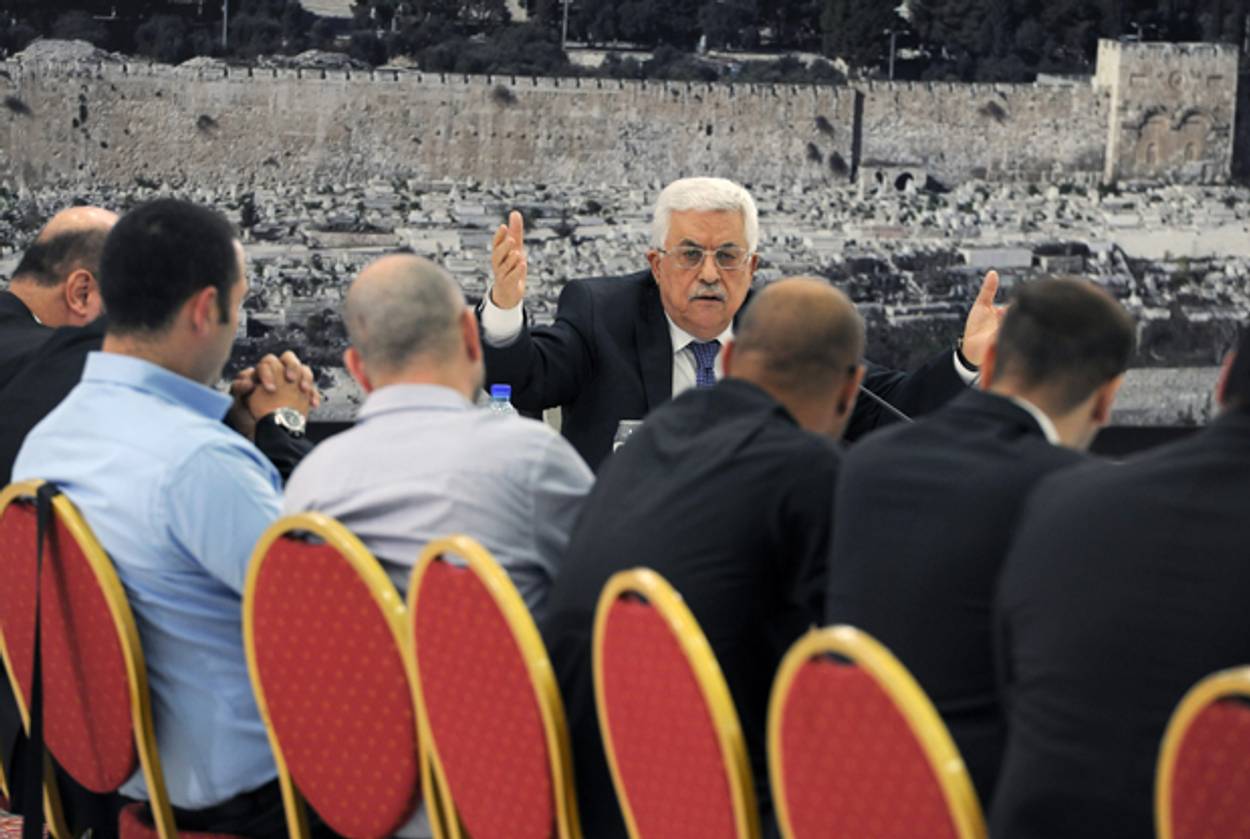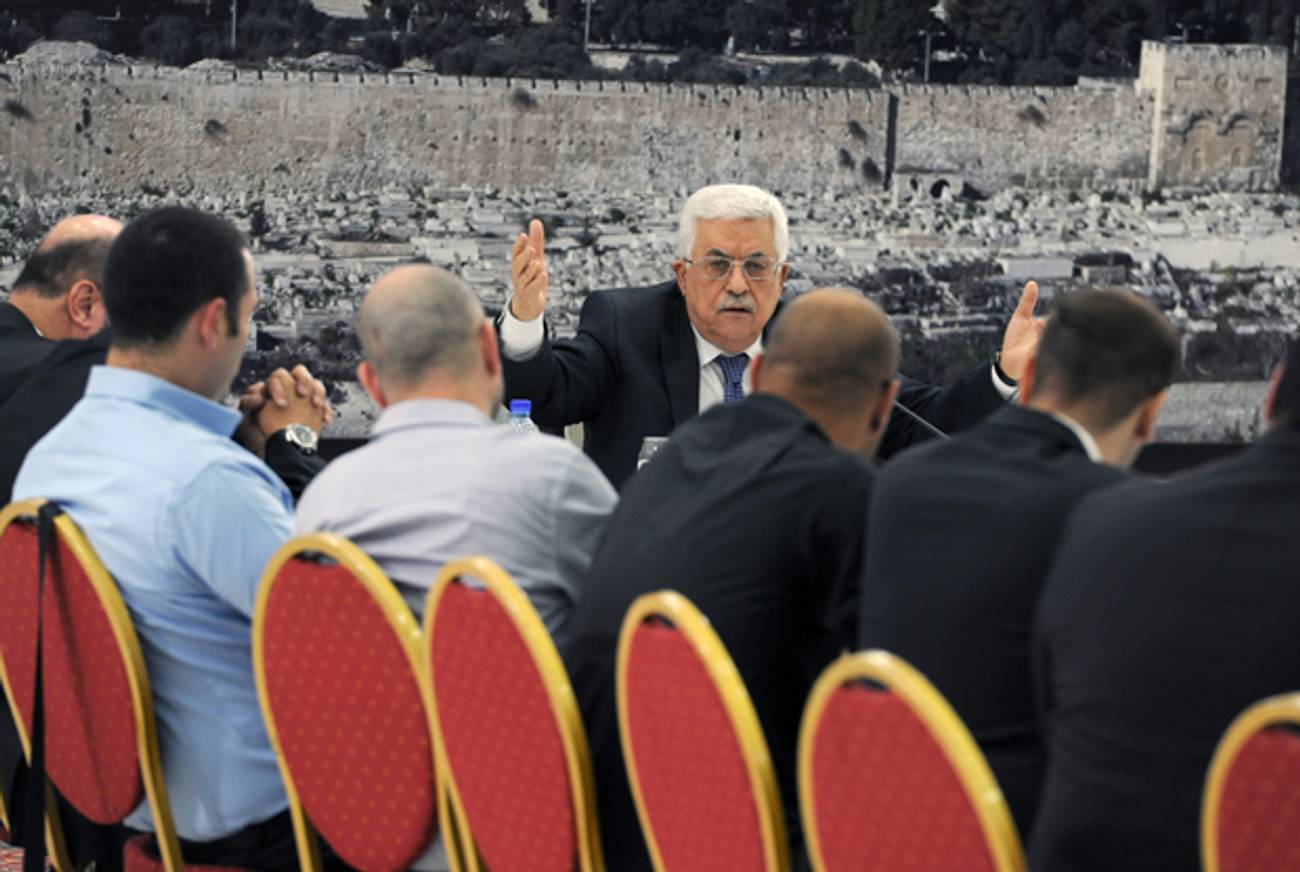Israel Halts Peace Talks After PA-Hamas Pact
What it all means for the peace process




In response to the unity deal between the Palestinian Authority and Hamas, the Israeli Cabinet has just voted to freeze peace talks. The vote was unanimous and included moderate Yesh Atid party leader Yair Lapid and chief negotiator Tzipi Livni. The move comes after the Fatah-Hamas pact came under criticism from the United States and reflects a broad consensus in Israel that by joining forces with Hamas—which is labeled a terrorist organization by the United States and the European Union and whose charter advocates the destruction of Israel and murder of Jews—PA President Mahmoud Abbas has jeopardized chances of reaching a two-state agreement.
What this augers for the long-term prospects of the peace process remains to be seen. Yesterday, the State Department emphasized that in order to participate in negotiations, Hamas must recognize Israel’s right to exist, accept prior diplomatic agreements like the Road Map, and renounce violence. “It’s hard to see how Israel can be expected to sit down and negotiate with a group that denies its right to exist,” State Department spokeswoman Jen Psaki told reporters. These conditions are also backed by the Middle East Quartet of the U.S., E.U., Russia, and the United Nations. It seems unlikely, however, that Hamas will acquiesce to these stipulations. Other analysts like the Center for American Progress’ Matt Duss have suggested that while such capitulations by Hamas may not be realistic, the group should be brought into the peace process if it agrees to place all armed forces under the control of the Palestinian Authority. Thus far, no such accord has been reached.
Prior to the Hamas-Fatah pact, Israeli-Palestinian talks were set to expire at the end of April. U.S. officials have been working to broker an extension, an effort now further complicated by Hamas’ involvement. Of course, several previous attempts at Palestinian unity collapsed rather quickly, so that complication may yet resolve itself. Crucial to any sustainable Hamas-Fatah reconciliation would be unified Palestinian elections, which have not been held in nearly a decade. The next development to watch for: if an actual election date is set, rather than pushed off into the distant future.
Previous: Abbas’s Choice
Yair Rosenberg is a senior writer at Tablet. Subscribe to his newsletter, listen to his music, and follow him on Twitter and Facebook.